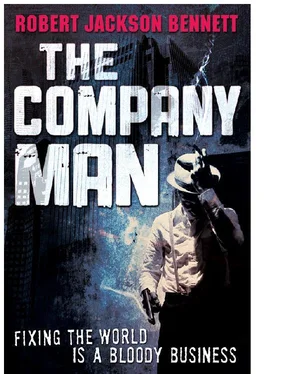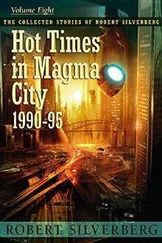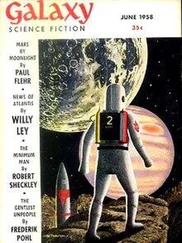Robert Bennett - The Company Man
Здесь есть возможность читать онлайн «Robert Bennett - The Company Man» весь текст электронной книги совершенно бесплатно (целиком полную версию без сокращений). В некоторых случаях можно слушать аудио, скачать через торрент в формате fb2 и присутствует краткое содержание. Жанр: Триллер, на английском языке. Описание произведения, (предисловие) а так же отзывы посетителей доступны на портале библиотеки ЛибКат.
- Название:The Company Man
- Автор:
- Жанр:
- Год:неизвестен
- ISBN:нет данных
- Рейтинг книги:3 / 5. Голосов: 1
-
Избранное:Добавить в избранное
- Отзывы:
-
Ваша оценка:
- 60
- 1
- 2
- 3
- 4
- 5
The Company Man: краткое содержание, описание и аннотация
Предлагаем к чтению аннотацию, описание, краткое содержание или предисловие (зависит от того, что написал сам автор книги «The Company Man»). Если вы не нашли необходимую информацию о книге — напишите в комментариях, мы постараемся отыскать её.
The Company Man — читать онлайн бесплатно полную книгу (весь текст) целиком
Ниже представлен текст книги, разбитый по страницам. Система сохранения места последней прочитанной страницы, позволяет с удобством читать онлайн бесплатно книгу «The Company Man», без необходимости каждый раз заново искать на чём Вы остановились. Поставьте закладку, и сможете в любой момент перейти на страницу, на которой закончили чтение.
Интервал:
Закладка:
The public was shocked, and the governments of both America and Canada were furious. How could they risk dropping airships onto civilians’ heads? And for what, simply to see if it was possible to send an airship as high as it could go? The Canadian government was especially angry, saying that the United States had best learn to curb its alpha pup, and most of America agreed. It was a preposterous idea in the first place. How could McNaughton ever have thought it could work?
This time the McNaughton response was immediate. They knew it could work, the company said coldly. It was just a matter of adjustment. When the authorities asked for some evidence to support this, the McNaughton spokesmen recited the usual litany of private entrepreneurial rights protecting the company’s research, and everyone threw up their hands in frustration. Indictments were drawn up, yet few expected them to get anywhere soon.
In Evesden the news was received with deep dismay. In the wake of the murders the city could hardly bear the disapproval resulting from the Red Star Scandal, as the press-somewhat enthusiastically-had labeled it. Everyone was overtaken with superstitious dread, interpreting the falling star as somehow connected with the eclipse that had happened earlier in the year, and it was said that this did not augur well for the city at all. Soon an almost medieval gloom spread throughout the streets, and each day people shook their heads as though surprised that the sun had chosen to rise at all.
Hayes, who had been dimly aware of the experiment (and the stress between the many internal factions both for and against it), was perhaps one of the few people in McNaughton who understood how this would seem in the wake of the murders. He sensed immediately that the city would feel that the sky was falling; that McNaughton had somehow pushed the limits, and the world would soon cave in; that the technological foundation upon which it had built the city was unsteady, and would soon crumble; and that the Age of Wonders that the company had ushered in across the globe was failing, and perhaps the threat of war that had come not so long ago had never really left. Maybe this, the city would say, was the end. After the union murders, it could only be more fuel on the fire.
But Hayes did not mention any of this to Brightly before he and a few other Security chiefs went north to assist. He simply sat and smoked and watched the northern skyline for a few minutes on New Year’s eve, the sun slowly disappearing behind the Kulahee Bridge and the staggered columns of Construct, and then, alone, returned to work.
And in the morning when the sun dawned 1920 dawned with it, an inauspicious birth for a dreaded year.
CHAPTER FIFTEEN
“Let’s do something in the Southern District today,” Hayes said one morning as he sat in Samantha’s office, draped across one of her chairs.
“What?” she said.
“Southern District. Let’s do something there. Some interview.”
“We have our interviews laid out for us,” she said. “Preplanned.”
“Oh, I know. But let’s find some excuse to go out there and babble. I’m sure there’s got to be one.”
“Why?”
Hayes did not answer. His face was hidden below the lapel of his coat and he might have been sleeping again.
They went to the Southern on the tenuous lead that one interview subject, Ramirez, who had been out previously due to the recent death of his father, was now available. But Ramirez knew nothing and was confused as to why they had even chosen to speak with him. His father had died before the trolley murders and he had been away in California for the funeral when they took place. Hayes nodded and agreed and after two hours of it they went to lunch. An hour later Samantha and Ramirez returned to continue their discussion, but Hayes instead chose to walk the three blocks down and across to the Tramline production facility.
Who am I today, he wondered to himself as he crossed the railroad lots and the small service roads. He reached into his pocket and took out six identification cards, each with different names, different titles, different access codes for whatever machine. He found the one for Andrew Staunton and tucked it into his front vest pocket and walked up to the loading dock. Men in greasy jumpers were milling about, backing up trucks and shifting cargo. They looked up and frowned at this little suit who was walking toward them with some official-looking papers in hand. They called to the foreman and he tore his eyes away from his clipboard and advanced on Hayes. Hayes held up his identification like a shield and shouted, “Staunton, Personnel section. Here to see Mr. Martin Andersson.”
“Andersson?” repeated the foreman, straining to make his voice heard over the clatter. “No Andersson on the dock.”
“Believe Mr. Andersson works on the spot line.”
“Spot line? Oh, all right then. You’re nowhere close.” He peered closer at Mr. Staunton’s identification and came away impressed. “That’s way inside and down. Mess up your clothes, you know.”
“That’s fine.”
“I’ll try and grab Collier, that’s the lower deck foreman. He’ll be able to get Andersson. Come on.” He walked over to the cement wall and slapped a button. A horn sounded somewhere and the iron mouth of the loading dock began to draw back. The facility, like all McNaughton sites, was shaped like a bunker. At the ground level it was a huge cement loading dock, with an enormous upper warehouse facility and manufacturing decks below and foundry lines sunk down in the far back. Hayes rarely visited the factories, but he’d handled plans and schematics plenty of times. He’d bought a few of them off the odd cunning bastard and sold others with significant structural integrity problems designed in. But he never remembered the size and scale and scope of the things.
Inside it was a vast cavern with a roof and walls so far back light could not touch them. Strings of chains and hooks looped down over tracks that wound off through the stations, each one designated by a different-colored light standing on poles at the intersections. Piping sprouted from the cement floor to meet above the loads and trusses, and some dripped scalding water and others dripped a substance that resembled water but was freezing and smoky. Hayes could just see the foundry’s crucible in the far back, enormous and round, the molten metal within its black lip glowing a gleeful unnatural orange that turned the workers at its base into wicked, fiery sprites with black glass eyes.
The dock foreman found the lower deck foreman, presumably Mr. Collier. Mr. Collier listened to the dock foreman’s shouts and grimaced in dismay and waved Hayes’s identification forward. Hayes handed it up again and it was scrutinized once more and Collier was impressed like the others.
“Oh, all right,” he said. “This way. You know, this guy meant it when he said you really shouldn’t have dressed so well.”
“I don’t mind a spot of grease.”
The foreman laughed and walked to a set of lockers set up against a scuffed cement wall. He reached in and pulled out a mottled brown jumper streaked with ash and reeking of sulfur and tossed it to Hayes. “Not grease,” he said. “I just don’t want to see your clothes catch fire on you.”
Hayes awkwardly suited up and they both put on immense black goggles, and then they went to one grated stairway and began the descent into the bowels of the factory. Soon orange light filled the charred walls from some unseen source below. The passageway grew immensely hot and moist. Every pipe and hose and rivet glistened. Hayes felt as if they were not in some creation of men but instead in some living machine, wandering its fevered breast as it struggled to push air and metal through its passageways. As they descended a dozen workers staggered up the steps, their faces sooty and their heads half-hidden by the liquid-black lenses of the smelter’s goggles. They watched Hayes and the foreman walk by with blank faces but Hayes was not sure they could make another kind.
Читать дальшеИнтервал:
Закладка:
Похожие книги на «The Company Man»
Представляем Вашему вниманию похожие книги на «The Company Man» списком для выбора. Мы отобрали схожую по названию и смыслу литературу в надежде предоставить читателям больше вариантов отыскать новые, интересные, ещё непрочитанные произведения.
Обсуждение, отзывы о книге «The Company Man» и просто собственные мнения читателей. Оставьте ваши комментарии, напишите, что Вы думаете о произведении, его смысле или главных героях. Укажите что конкретно понравилось, а что нет, и почему Вы так считаете.












